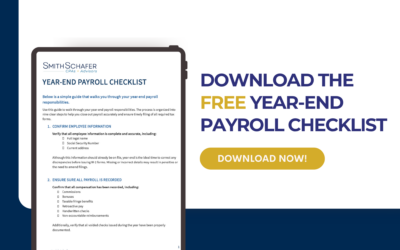Outsourced accounting is becoming an increasingly popular choice for businesses of all sizes, offering specialized financial expertise without the overhead costs of maintaining an in-house team. To help you better understand the benefits and process of outsourcing accounting services, we sat down with Brian G. Oxley, a seasoned accounting professional with years of experience in the industry. Brian holds CPA/ABV/CFF credentials and has worked with a wide range of businesses, from startups to established mid-sized companies.
In this Q&A, Brian shares valuable insights into how outsourced accounting can drive efficiency, reduce costs, and provide flexibility for growing businesses.
Understanding Outsourced Accounting
Q: What is outsourced accounting?
Outsourced accounting involves delegating all or part of your company’s accounting functions to an external provider. Instead of hiring an internal team, businesses partner with a firm that manages their financial records, bookkeeping, payroll, and tax preparation remotely. This approach can be tailored to suit a company’s specific needs, from basic bookkeeping to full-scale financial management.
Q: How does outsourced accounting differ from in-house accounting?
In-house accounting requires hiring dedicated staff to manage financial functions on-site. This involves recruiting, training, and retaining employees while covering salaries, benefits, and other overhead costs. Outsourced accounting eliminates these burdens by providing access to skilled professionals without the ongoing costs of maintaining an internal team.
Q: What types of businesses benefit most from outsourcing accounting?
Outsourced accounting can benefit a wide range of businesses, but it’s particularly useful for:
- Small Businesses: Limited budgets and resources often make it difficult to maintain a full-time accounting team, so outsourcing offers a cost-effective solution.
- Startups: Growing businesses can access the expertise they need without committing to long-term hires, allowing them to scale as they grow.
- Mid-sized Companies: Outsourced accounting allows companies to manage complex financial operations as they expand without the need to constantly hire and train new staff. Outsourcing also provides access to higher level expertise without the cost of a full-time hire
Industries that frequently use outsourced accounting services include healthcare, technology, manufacturing, and professional services such as law firms and consulting firms.
Benefits of Outsourcing Accounting
Q: What are the cost benefits of outsourcing accounting?
Outsourcing accounting is typically more cost-effective than hiring an in-house team. Instead of covering the salaries, benefits, and infrastructure costs of full-time employees, businesses pay only for the services they need. This allows for significant savings, especially for small and mid-sized businesses. Additionally, outsourced firms often use advanced accounting software and processes, reducing errors and costly delays.
Q: How does outsourcing provide access to specialized expertise?
When you outsource your accounting, you’re not just hiring one person—you’re gaining access to a team of experts with specialized skills. These professionals are well-versed in the latest regulations, industry trends, and financial practices. This allows businesses to benefit from high-level financial expertise without having to hire multiple full-time employees.
Q: How is outsourced accounting scalable and flexible?
Outsourced accounting services are highly adaptable, allowing businesses to scale their services up or down based on their needs. For example, during periods of rapid growth, businesses can easily add more services or hours without having to go through the hiring process. Conversely, if the business experiences a slow period, it can reduce its outsourcing commitments. This flexibility is one of the main advantages of outsourcing.
Q: How does outsourcing allow businesses to focus on their core activities?
By outsourcing accounting functions, businesses can focus on what they do best—whether that’s delivering products, providing services, or driving innovation. When financial management is in the hands of professionals, businesses can direct more energy and resources to strategic initiatives, ultimately boosting productivity and growth.
Choosing the Right Outsourced Accounting Service
Q: What should businesses look for in an outsourced accounting provider?
When selecting an outsourced accounting provider, it’s essential to consider the following:
- Qualifications and Certifications: Look for firms with certified public accountants (CPAs) and other relevant qualifications.
- Experience: A provider with experience in your industry will be better equipped to handle your specific financial needs.
- Reputation: Check references and reviews to ensure you’re working with a reliable partner.
Q: How important is it to match the provider’s expertise with the industry of the business?
Industry-specific knowledge is crucial in accounting. Different industries have unique financial regulations, reporting requirements, and tax considerations. For example, the accounting needs of a healthcare provider differ significantly from those of a retail business. Working with a provider who understands your industry ensures compliance and more accurate financial management.
Q: What questions should businesses ask potential providers?
Some key questions to ask include:
- What specific services do you offer, and are they customizable?
- How familiar are you with our industry and its accounting challenges?
- What is your pricing structure, and how flexible are your contracts?
- Can you provide references from businesses similar to ours?
Red flags to watch out for include vague pricing models, lack of clear communication, and limited experience in your industry.
Managing the Relationship with an Outsourced Provider
Q: How can businesses effectively communicate with their outsourced accounting team?
Effective communication is key to a successful outsourced relationship. Regular check-ins and clear expectations from both sides will ensure that everything runs smoothly. Utilizing collaboration tools such as project management software, secure messaging apps, and cloud-based accounting systems can help streamline communication and keep everyone aligned.
Q: What are the common challenges businesses face with outsourced accounting?
Common challenges include issues related to data security, integration with existing systems, and maintaining control over financial processes. These challenges can often be mitigated with careful planning, clear contracts, and selecting a provider with experience in handling similar issues.
Q: How can businesses ensure data security and compliance when outsourcing?
Data security and compliance are critical when outsourcing accounting. Ensure that the provider follows strict data protection protocols and complies with relevant regulations. Ask about encryption, secure file transfers, and audit trails to protect your sensitive financial information.
Questions?
Outsourcing accounting offers many benefits, from cost savings and flexibility to access to specialized expertise. By choosing the right provider and maintaining a strong working relationship, businesses can significantly enhance their financial management and focus on growth. If you’re considering outsourcing your accounting, Smith Schafer’s experienced team is here to help guide you through the process. Contact us to learn more about how our services can support your business.



